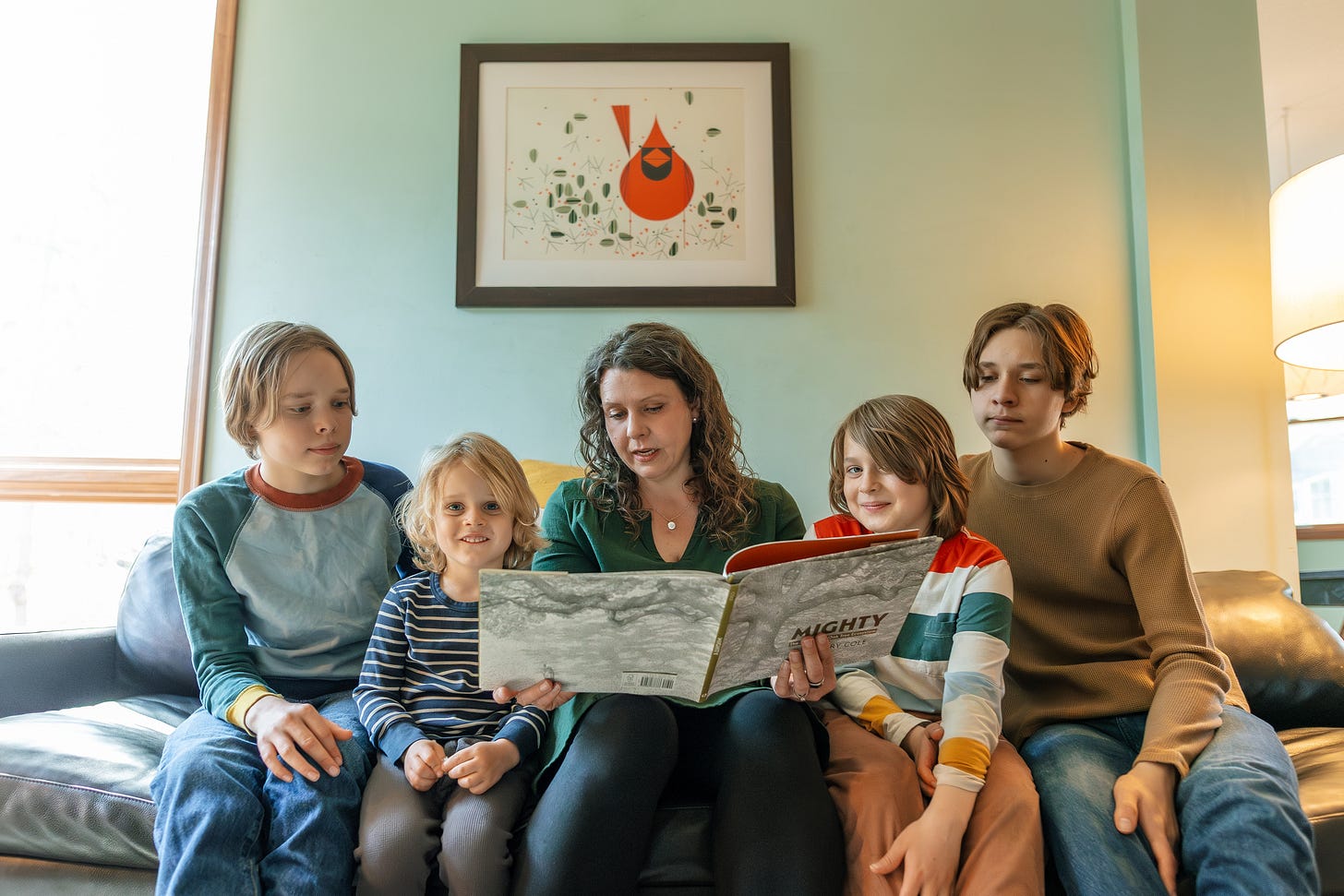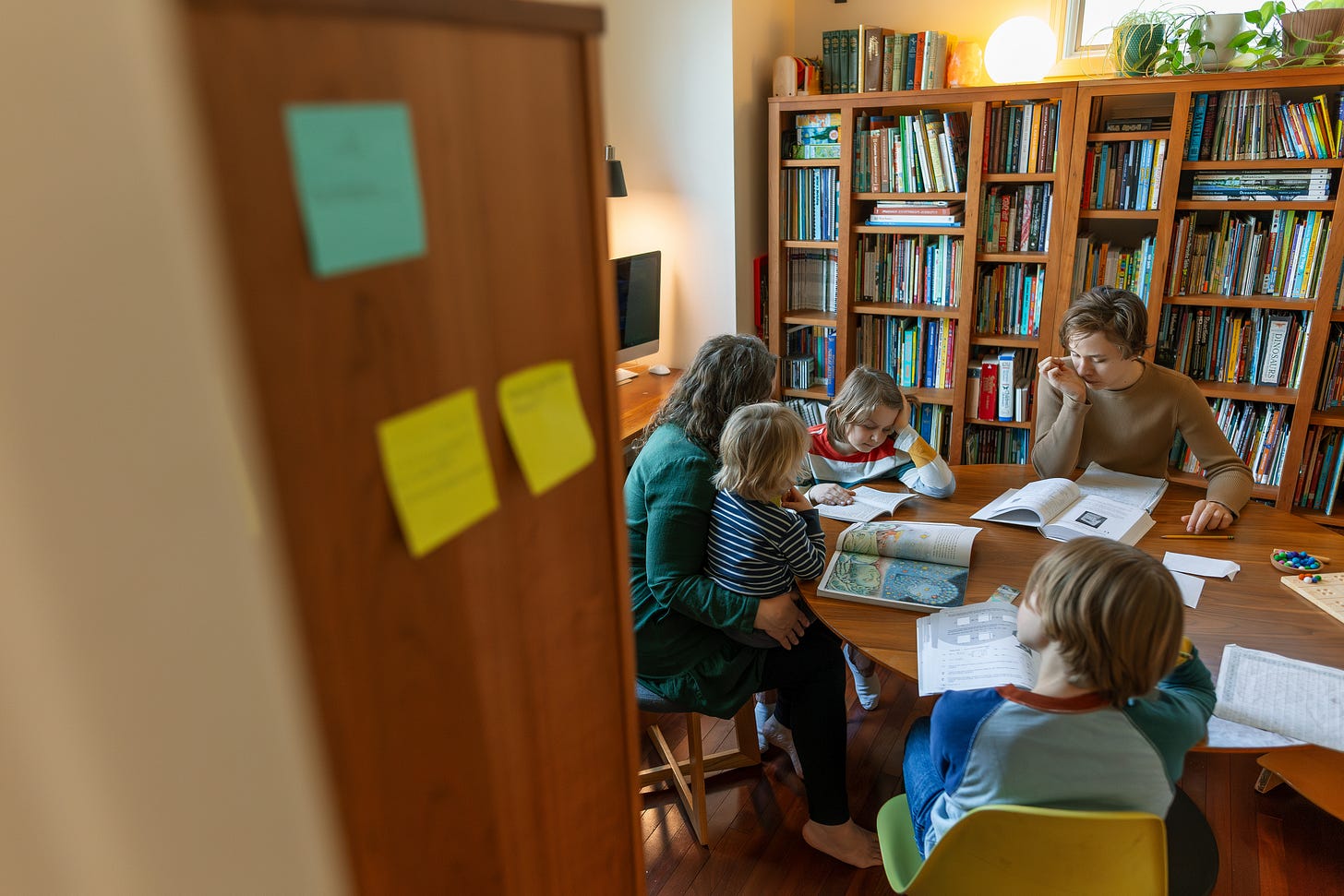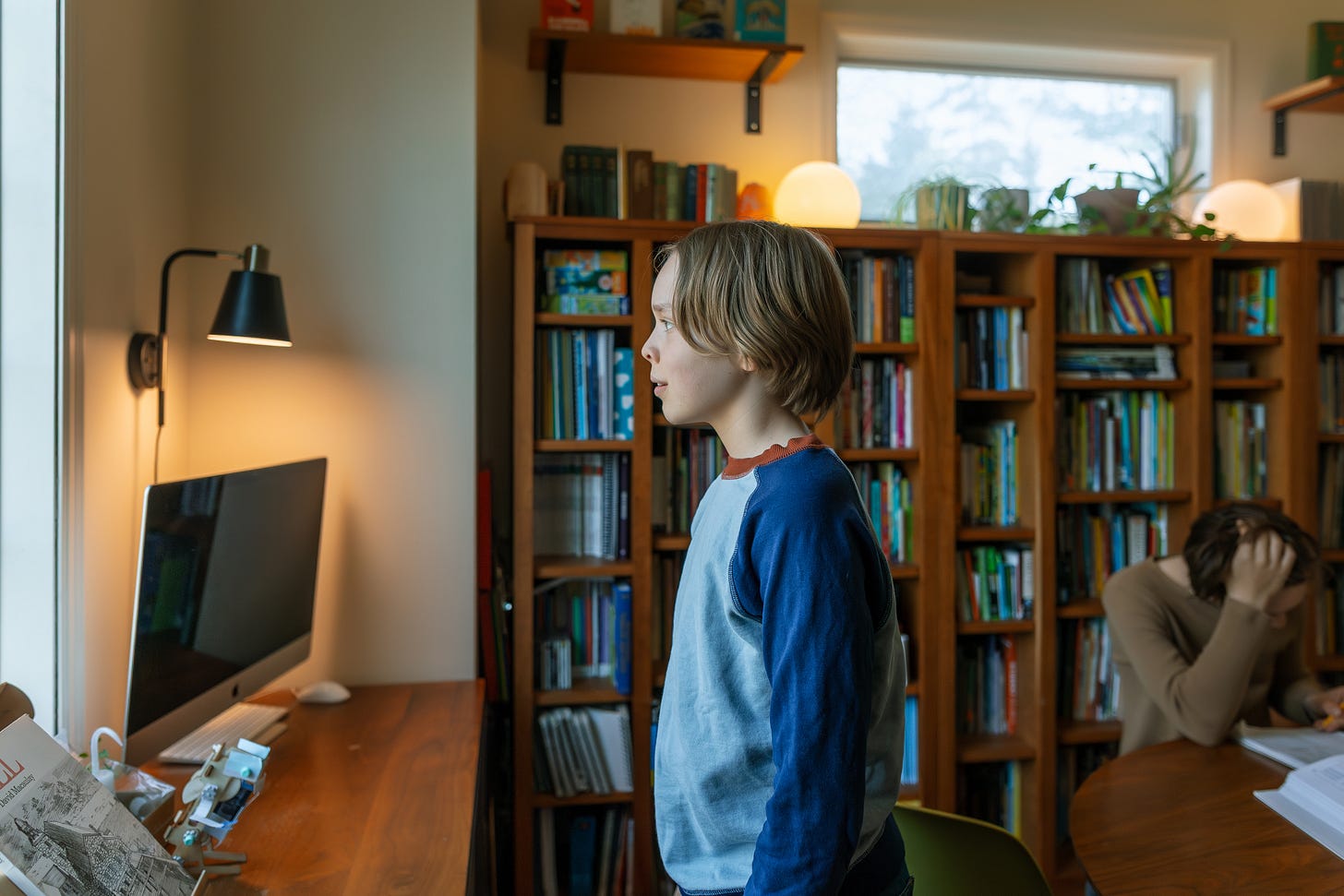Top 10 Myths in Home Education Series, Part 2
Myths that are touted as facts, but are really tripping you up.
I have been home schooling my children long enough to see this community change, evolve, and then fall back to old conventions. My goal with this series is to empower and equip you to have a happy and effective homeschooling journey.
If you missed the first half of this series, you can read it here.
Let’s jump right in!
6. Relying on written narrations as your composition and writing curriculum. It is valuable to honor all forms of written expression that our kids produce. Our children deserve the enjoyment of self-expression through writing poetry and fiction, as well as creating lapbooks and mini books about nonfiction topics. These all go a long way in developing their creativity and learning to love stories. When we spend much of our time together reading aloud it is natural for our children to want to self-express in a similar manner. Value this creative writing just as much or more than you do written narrations. Writing can and should take many forms over the course of our lives and they all deserve to be “counted”.
7. Elevating the schedule to be the king of our days. I have witnesses many home educators lose sight of her vision because her schedule has become her master. Believing that by honoring and upholding the schedule she is being a successful home educator. However, lasting learning is what happens when we allow space in our days to follow inspiration. When we loosen up and indulge in the rabbit trails of life, we can find our deepest sense of joy and peace with our kids. I did not sign up for this job of home educating my kids so that I could bow to a schedule. I made this choice because I wanted to have fun learning alongside my kids.
Instead of a rigid schedule, our days follow a routine where we do one thing and then the next. Many days we do not do all of the things that I have on my list for that day and instead indulge in the subjects that are currently bringing us joy. The next day we simply move on to the things we didn’t do the day before. Smile and relax, it does wonders not only for your nervous system, but also for your relationship with your kids. We all learn more deeply when we are enjoying ourselves.
8. It is unnecessary and even advisable to NOT pre-read your children’s books. I could go on and on about this practice and how I feel that it can easily lead to home educator burn out, so I will try to keep this concise. Simply enjoy books for the first time while reading them aloud to your kids. Shared delight is infectious and your kids will pick up on that. Your precious time is better spent becoming the adult that you have always wanted to be, not pre-reading your kids school books.
There are many online resources to assist you in choosing literature for your kids as well as how to discuss it with them, even if you haven’t read the book yourself. Some of my favorites are Read Aloud Revival, Redeemed Reader, and Brave Writer. You can also use Chat GPT and Amazon reviews to spot content that you feel your children are not ready to read or do not fit your family culture.
If you are wanting to grow as a home educator, use the time that you would dedicate to pre-reading to instead read books about education written by educators, not just home educators like Julie Bogart, Ainsley Arment, Sally Clarkson, Sarah Mackenzie, and Leah Boden; add in educational reformers like Charlotte Mason, John Holt, Donalynn Miller, Denise Gaskins, Michael Resnick, and Sir Ken Robinson. Valuing your own education not only gives your children a vision of a fulfilled adulthood, but will go a long way in preserving your own mental health. You deserve to have a wonderful adulthood alongside home educating your kids.
9. Trying to be the poster child of home education’s superiority over public education. When we set our sights on the public-school system as our competition, we tend to become the very thing that we are turning away from. At a certain point, you have to ask yourself: why are you doing so much work to emulate what the school down the street is already doing well? I have seen many home educators thrust a rigorous education on their children in the name of educational preeminence.
This usually looks like one of two things: pushing too much challenging literature on children who are too young to benefit from it in the name of a distinguished education or children independently (read: alone) working through a stack of thick workbooks every single day. If our goal is a well-educated and well-adjusted child, we will not achieve that goal by having our kids burn out on the very best and rigorous. Our children need thought partners. Adults who are curious and engaged in their education and well-being. When we educate from a place of curiosity and relationship our children will excel.
10. Tying our children’s educational success to how well we can execute a certain idealized educational philosophy. Embarking on the home education journey is not for the faint of heart. And it is easy to cling to the life raft of an educational philosophy like it is our saving grace. It is challenging to be flexible in our ideals in education and parenting, because we are simply trying to get things right for the sweet people whom we love so much.
I regularly see parents who are unwilling to change or modify their educational ideals because of a dedication they feel to doing a Charlotte Mason or Unit Study or Classical Education to the highest level. Instead of being flexible and open minded, they double down on the tenets of their chosen philosophy of education. Allowing their educational philosophy to bully both them and their children. This leads to strained relationships, a lack of deep learning, and/or burn out for everyone involved. Instead of stopping to actually see ourselves and our children for who we really are and then allowing that to lead our educational philosophy. As Charlotte Mason states, children are born persons and all education is self-education. Our children deserve to be factored into their own educational journey.
I hope that new and veteran homeschoolers alike would share the false messages that you are seeing in our community. In the comments, I would love to hear about your experience in the home education world – please share other myths that you see and lessons you have learned along the way.








Nailed it. 👏🏼 to this whole series. I can’t imagine keeping up with my kids’ reading by prereading. I love reading for the first time with my kids! Also, Jonathan Rogers answered a ? about prereading at a homeschool convention: if you’ve been teaching your children the good, beautiful, & true, why are you prereading for them as tweens & teens? Let them practice their own discerning. And right before the convention I had done that (though my kid was 9-10) & he came down & “threw” a book in the library basket bc it was not good, beautiful, & true & he was mad😆
Excellent list!!